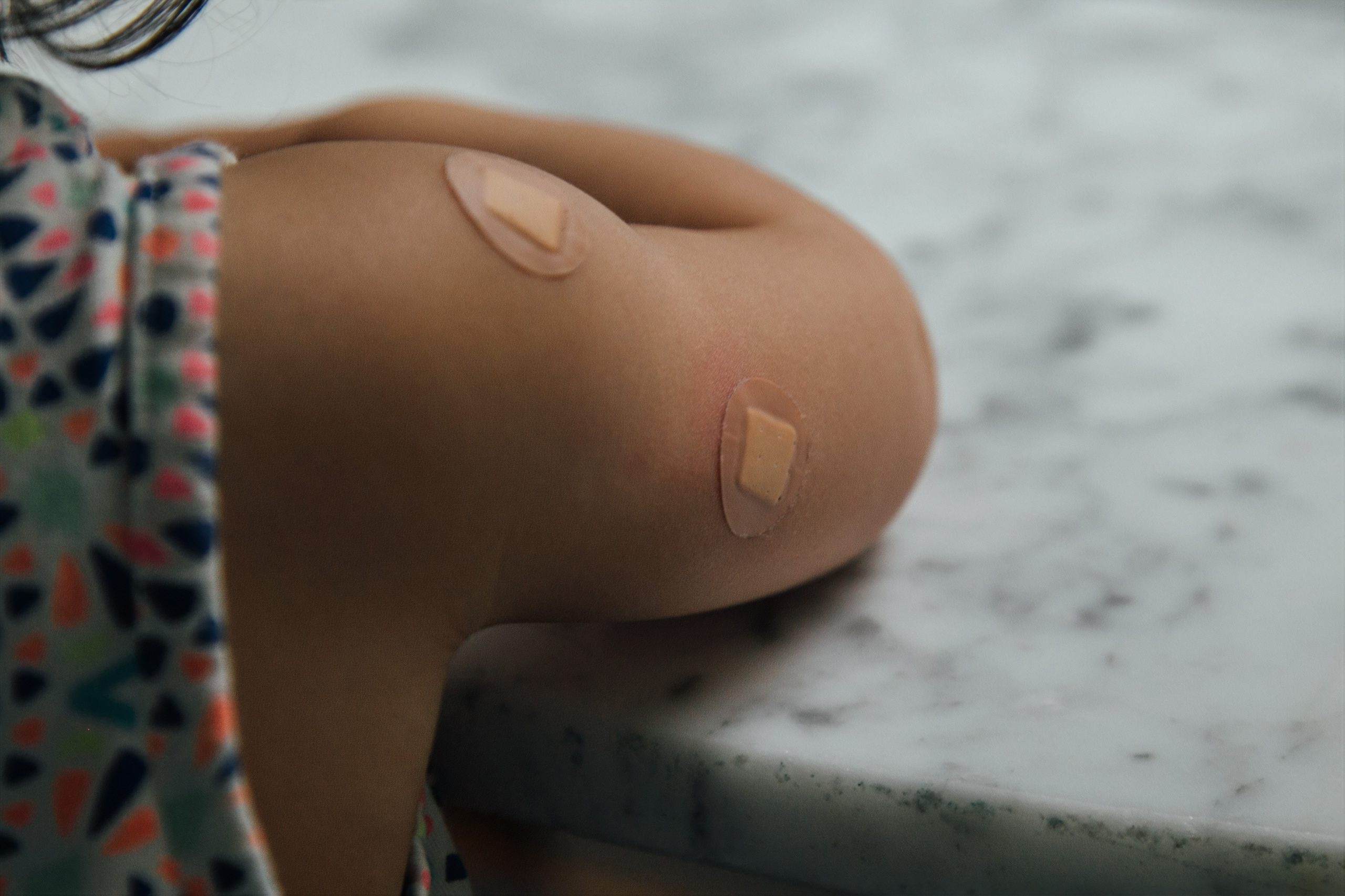Tips from Child Life: Helping Children Receive the COVID-19 Vaccine

Tips from Child Life: Helping Children Receive the COVID-19 Vaccine
Now that the Omicron variant has arrived and COVID-19 cases are again on the rise, many parents and caregivers are eager for their children to be vaccinated. Although having children vaccinated is an important step, many children are afraid of getting the shot. As a student in the Child Life program at BU Wheelock, I was fortunate to have interned at Boston Children’s Hospital Primary Care Center, where I helped children receive vaccinations. Through this experience, I learned several techniques to help parents and caregivers cope with their children’s anxiety about receiving the vaccine.
One of the most important things parents and caregivers can do is to be honest. If your child is old enough, tell them that they are going to receive a vaccine and what it is for. Many children are anxious about COVID-19 and may be relieved to know the vaccine will help protect them. If your child asks whether the vaccine will hurt, tell them it may feel like a pinch or poke, but it will be over quickly.
Once at the doctor’s office or clinic, there are several things parents and caregivers can do to help their children through the vaccination process:
- Comfort positions – Parents are accustomed to having their child lie flat on an exam table with a nurse holding the child down while giving the vaccine, but your child may feel more safe and secure sitting on a parent’s lap. This position also helps your child stay still for the vaccine. If your child is older, they may prefer to sit next to you or hold your hand.
- Pain relief – Parents can ask their doctor or nurse for numbing cream (Emla cream, Synera patch) or cold spray/cold pack to reduce the pain felt when the needle is inserted. Using a pain-relieving medication or cold spray/pack or rubbing the arm before the injection can ease some stress felt by your child. Telling your child that this cream helps take some of the hurt away can be reassuring for them.
- Distraction – Even though the injection takes only a few seconds, distracting your child helps them remain calm and still and makes the situation more fun. Have your child play a game, sing a song, count to 10, use a fidget toy, or read a book. Even counting how many pictures are hanging on the wall or how many people are in the room can be a distraction.
Yes, vaccinations can be stressful for both parents and children, but following these tips can reduce the stress and make the experience more manageable. Children often feel and take on their parents’ stress, so it’s important that parents stay calm when helping their child through vaccinations. By remaining calm and providing encouragement, parents can help make their children more at ease.
Finally, remind your child that they are doing their part in stopping the spread of COVID-19 and let them know how proud you are that they received their vaccine.
Elizabeth Gallagher completed an MS in the Child Life & Family-Centered Care at BU Wheelock. She is a registered nurse who recently trained vaccinators on techniques to help children as they are vaccinated for COVID.
